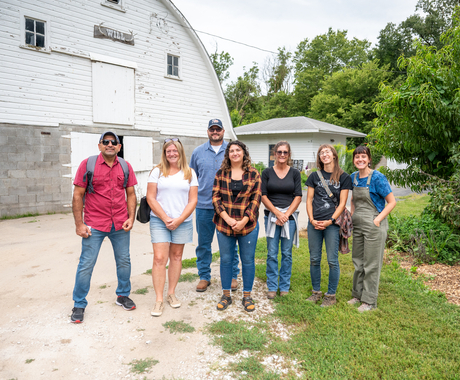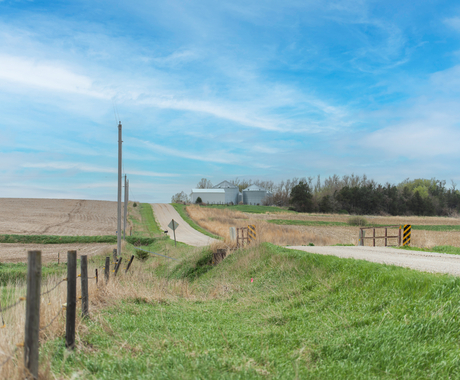Rhea Landholm, brand marketing and communications manager, [email protected], 402.687.2100 ext 1025
SOUTH DAKOTA – As lawmakers work to finalize the 2018 farm bill, a group of 29 grantees of the Rural Microentrepreneur Assistance Program (RMAP) have signed a letter calling on Congress to fund the program.
The letter asks for a $3 million appropriation in mandatory funding each year, a fraction of the $867 billion price tag for farm bill spending over the next 10 years.
Signing on to the letter are Four Bands Community Fund in Eagle Butte, Glacial Lakes Area Development in Britton, and Lakota Funds in Kyle, three of seven organizations in the state that receive RMAP dollars. South Dakota is one of 18 states represented in the letter.
“As a member of the Senate Agriculture Committee, Sen. John Thune (R-SD) has the opportunity to protect this program on behalf of South Dakota’s rural businesses,” said Cora Fox, policy associate at the Center for Rural Affairs.
RMAP provides access to loan capital through grants to organizations that provide training, technical assistance, or small loans to rural businesses in South Dakota and nationwide. Since its creation in 2008, the program has helped 2,100 small businesses create jobs and expand consumer access to goods and services in rural areas.
The House passed its version of the farm bill on June 21, 2018. A week later, the Senate passed its farm bill proposal. Both versions failed to include funding for RMAP, but there is an opportunity to save this program in the conference committee.
“Rural businesses play an important role in our nation’s economy, and it is critical that Congress supports RMAP with mandatory funding,” Fox said. “With more than half of South Dakota’s population residing in rural communities, we are counting on Sen. Thune to be a champion for small, rural businesses and advocate for RMAP funding. This program is an opportunity to invest in South Dakota and improve the lives of rural residents in the state.”
“RMAP helps spark innovation and economic activity in rural areas where it is sorely needed,” said Anna Johnson, senior policy associate at the Center for Rural Affairs. “Small scale entrepreneurship is a proven strategy to revitalize rural communities, and RMAP can help create genuine opportunity, with modest public investment, across South Dakota.”
Funding for RMAP is set to expire on Sept. 30, 2018, unless renewed in the farm bill.
Organizations signing the letter include: Arkansas: Communities Unlimited, Inc., Fayetteville; California: California FarmLink, Santa Cruz; Feed the Hunger Foundation, San Francisco; Jefferson Economic Development Institute, Mount Shasta; Terra Green Community Development Corporation, Alameda; Colorado: Community Resources and Housing Development Corporation, Westminster; Idaho: Clearwater Economic Development Association, Lewiston; Kentucky: Community Ventures Corporation, Lexington; Maine: Coastal Enterprises, Inc., Brunswick; Community Concepts Finance Corporation, Lewiston; MaineStream Finance, Bangor; Northern Maine Development Commission, Caribou; Maryland: Eastern Shore Entrepreneurship Center, Easton; Massachusetts: Quaboag Valley Community Development Corporation, Ware; Michigan: Northern Initiatives, Marquette; Minnesota: Southwest Initiative Foundation, Hutchinson; Montana: MoFi, Missoula; Nebraska: Center for Rural Affairs, Lyons; First Ponca Financial, Grand Island; Nebraska Enterprise Fund, Oakland; Nebraska City Area Economic Development Corporation, Nebraska City; New Jersey: Cooperative Business Assistance Corporation, Camden; Oregon: Klamath Lake Regional Housing Center (KLRHC), Klamath Falls; Pennsylvania: Community First Fund, Lancaster; South Dakota: Four Bands Community Fund, Eagle Butte; Glacial Lakes Area Development, Britton; Lakota Funds, Kyle; Washington: Seattle Economic Development Fund dba Business Impact NW, Seattle; Wisconsin: CAP Services, Inc., Stevens Point.




